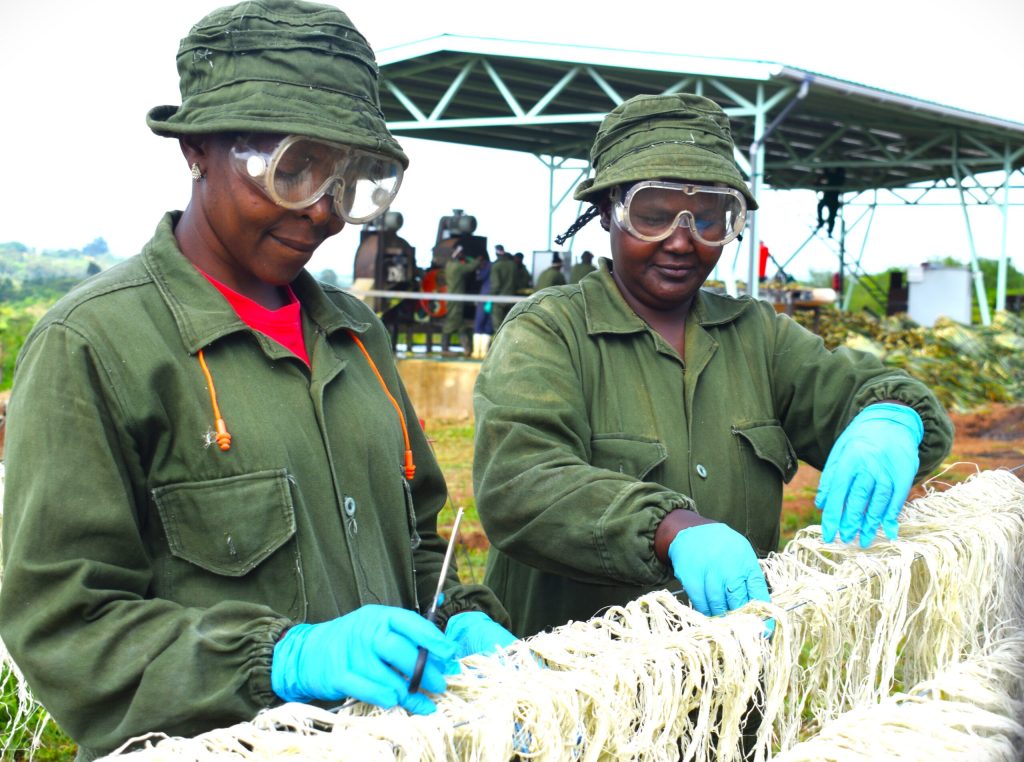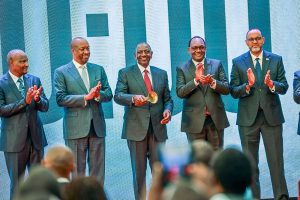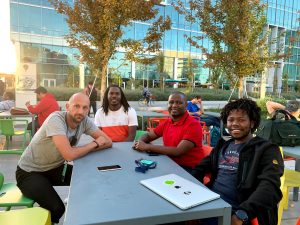
From-Left-Lilian-Ndungu-and-Agnes-Kiloko-arranging-processed-fibre-to-sun-dry-before-going-back-to-the-machine-for-fine-processing
Competition Authority of Kenya (CAK) has approved Delmonte to take a full acquisition of Mananasi Fibre Limited (MFL), giving the orchard fruit processor total control of the pineapple supply chain.
The Authority, in a statementit said that the transaction went with a clean bill of health as it will not likely inject negative competition, as well as clear chances of inflicting negative public interest concerns.
 The Competition Authority of Kenya (CAK) requires firms seeking to merge to obtain prior approval if their combined turnover or assets, whichever is greater, exceed Sh1 billion.
The Competition Authority of Kenya (CAK) requires firms seeking to merge to obtain prior approval if their combined turnover or assets, whichever is greater, exceed Sh1 billion.
CAK verifies the transaction referenced in the circular surpassed this threshold for mandatory notice and rigorous examination as outlined in the guidelines.
MFL is engaged in waste management, that includes the transformation of pineapple waste to value-for-money products, with its main activity being fibre extraction, compost production and biochar.
Biochar is a solid carbon product that is used to improve water quality, restrict soil releases of greenhouse gases and reduce soil acidity, irrigation and fertiliser requirements.

While MFL itself specializes in pineapple plant waste composting, its products themselves encounter market rivalry in the shape of commercial composts derived from different raw/organic feedstocks.
While issuing the license, CAK said that the deal would enable Delmonte to introduce a pineapple waste solution.
“Pineapple production results in large quantities of wastes like leaves, stems, peels, pulp and wasted fruits, much of which ends up being burnt, causing air pollution and greenhouses gases. Extracting fibre is the alternative that is sustainable by using waste leaves and converting them into textile-grade fibre,” the authority said.
In addition, the authority said that the demand for pineapple fibre is growing as a sustainable and eco-friendly alternative to traditional textile, leathers and materials in the motor industry.

“In Kenya, the market is still emerging with few key players, including MFL, Ping and Eco Nasi,” CAK noted.
CAK further said that the market is still emerging with few key players, including MFL, Pine Kazi and Eco Nasi.
CAK added that following the merger, MFL’s market share will not change since the seller will exit and the buyer will enter the market.

The structure and concentration of markets for textile grade pineapple fibre, compost production and biochar production will not change.
“The merging of operations and subsequent expansion are likely to create additional employment opportunities for skilled and unskilled staff,” CAK added.







